Understanding the Basics of Ayurveda: A Beginner’s Guide
Ayurveda is a traditional Indian system of medicine that is believed to have been developed
more than 5,000 years ago. The word “Ayurveda” is derived from two Sanskrit words: “Ayur,”
which means life, and “Veda,” which means knowledge. Together, Ayurveda means “the
knowledge of life” or “the science of life.” Ayurveda is a holistic system that focuses on
achieving balance in the body, mind, and spirit.


Here are some key principles of Ayurveda that can help you understand this ancient practice:
Doshas: According to Ayurveda, each person has a unique combination of three doshas or
energies, known as Vata, Pitta, and Kapha. These doshas are responsible for governing
different bodily functions and can be influenced by a person’s lifestyle, diet, and environment.
Balance: Ayurveda emphasizes the importance of balance in all aspects of life, including diet,
exercise, sleep, and work. When the doshas are balanced, a person is believed to be in good
health, while an imbalance can lead to illness.
Diet: Ayurveda places great importance on diet and recommends that people eat according to
their dosha. For example, Vata types are advised to eat warm, nourishing foods, while Pitta
types are encouraged to eat cooling, soothing foods.
Herbs and Supplements: Ayurveda uses a wide variety of herbs and supplements to help
balance the doshas and promote good health. Some commonly used herbs in Ayurveda include
turmeric, ashwagandha, and ginger.
Mind-Body Connection: Ayurveda recognizes the importance of the mind-body connection and
recommends practices like yoga and meditation to help promote relaxation and reduce stress.
Diagnosis: Ayurvedic practitioners use a variety of techniques to diagnose imbalances in the
doshas, including pulse diagnosis, observation of the tongue and eyes, and questioning about
symptoms and lifestyle habits.
Treatment: Ayurveda offers a range of treatments to restore balance to the doshas and promote
good health. These may include herbal remedies, dietary changes, massage, and other
therapies.
It’s important to note that Ayurveda should not be used as a substitute for Western medicine or
to self-diagnose and treat serious health conditions. Always consult a qualified healthcare
practitioner before beginning any new health regimen

